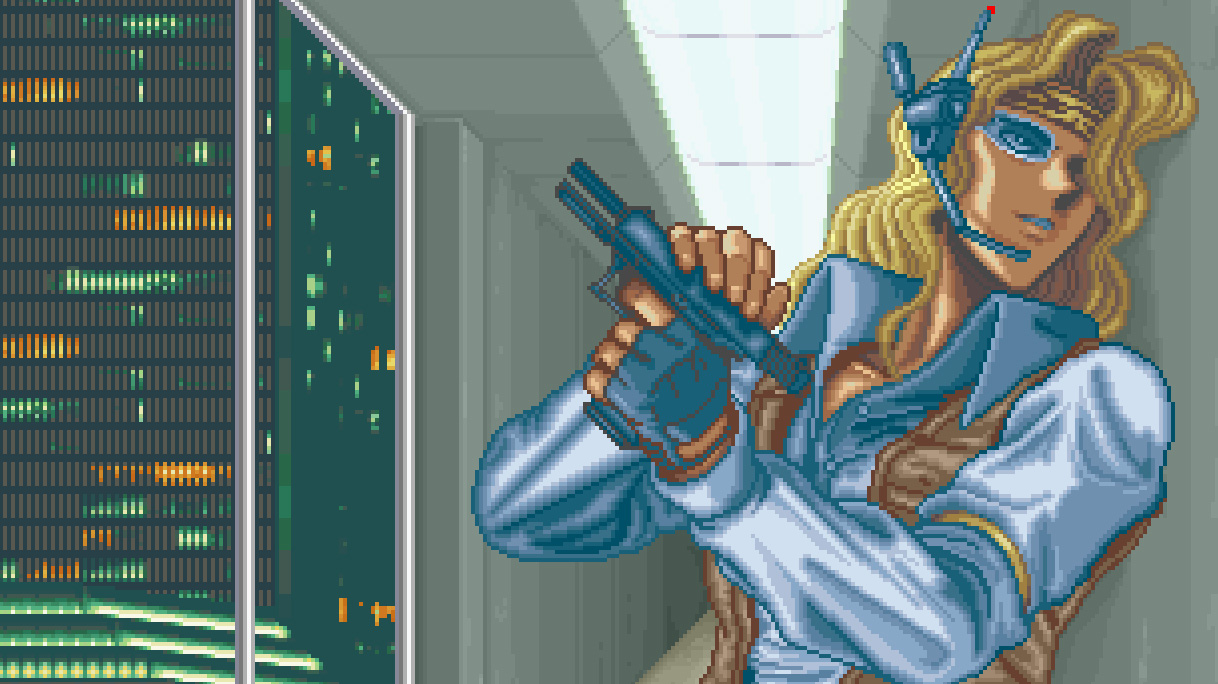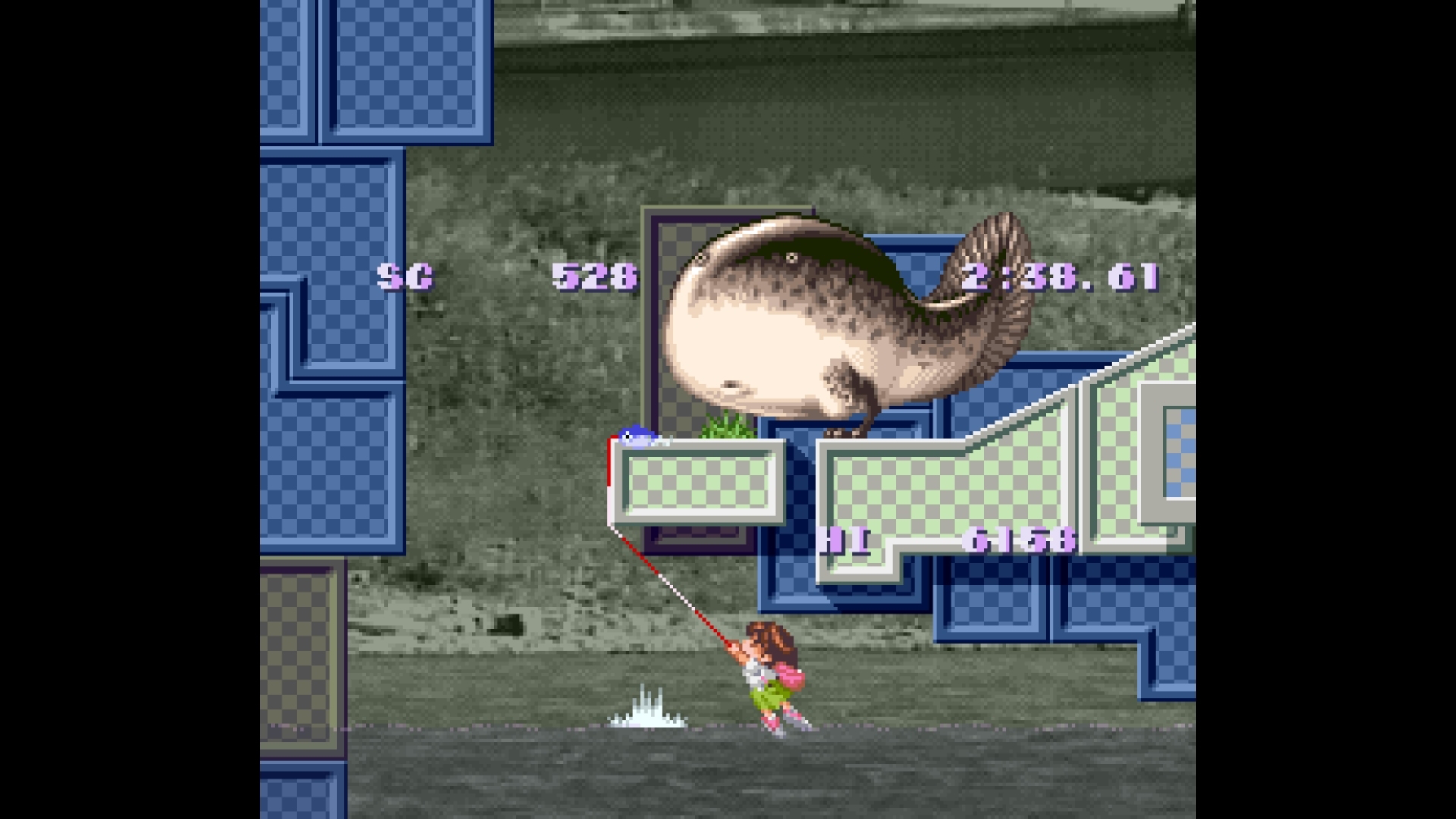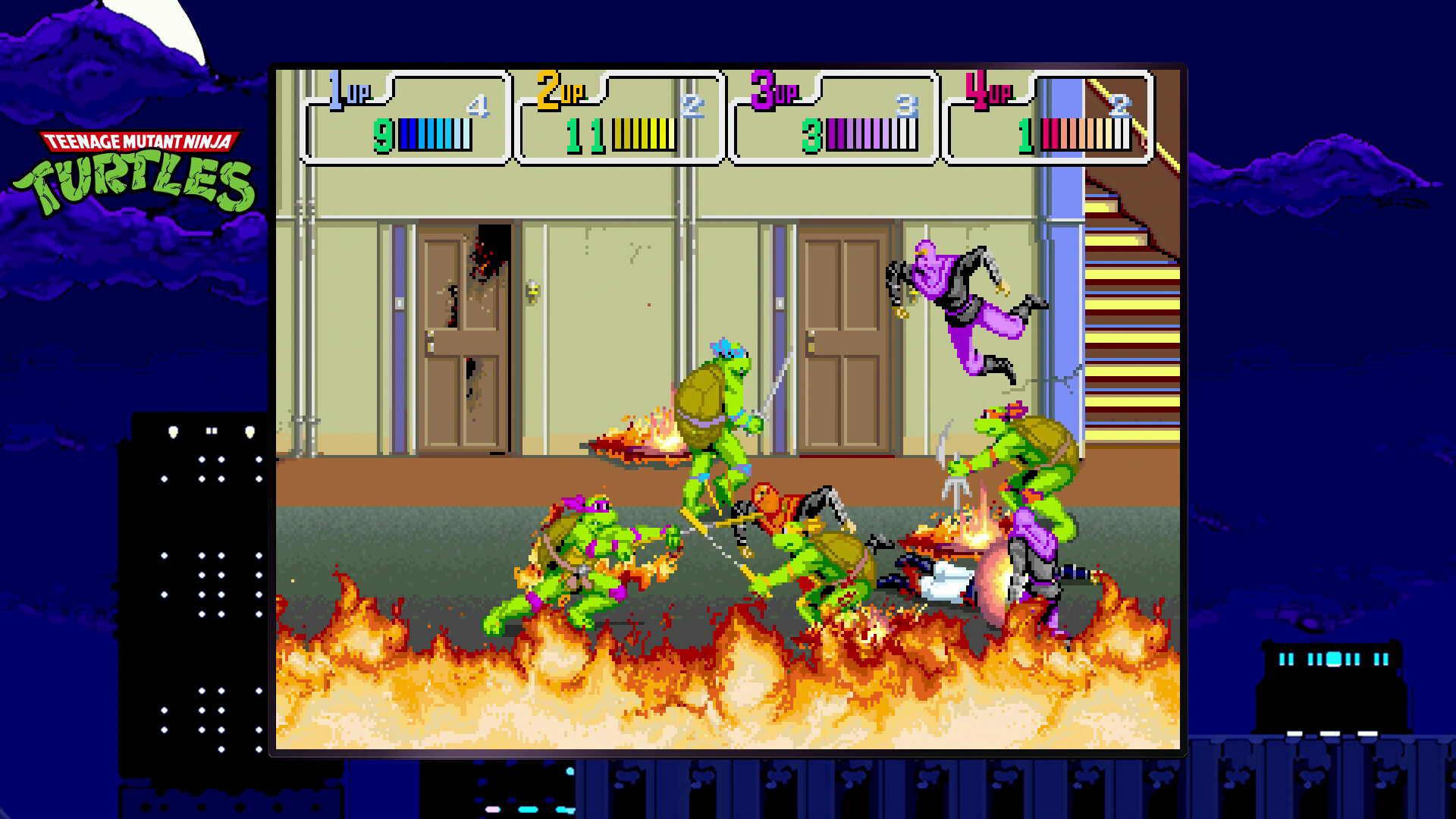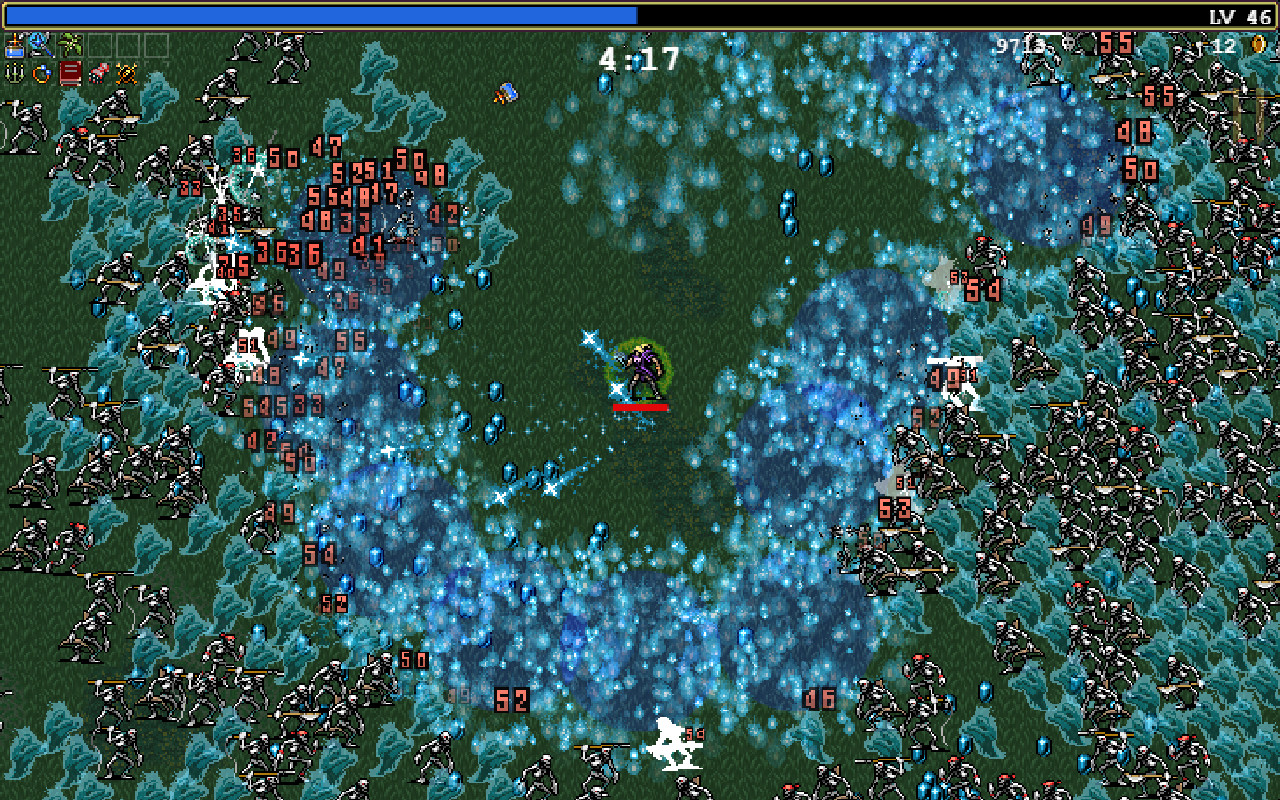Nobody's selling classic games on Steam the right way
Some of the best games ever made are added to Steam every month—so why is no one buying them?

Dwarf Fortress sold almost half a million copies when it launched on Steam last December, even though the original game has always been free and its new graphical upgrade seems to have come straight out of 1995. Brightly coloured farming sim Stardew Valley currently clears 30,000 concurrent users a day even at off-peak times. Carrion, a small metroidvania where you play as a faceless monster trying to escape a secret facility, has garnered over 17,000 positive reviews since 2020.
Oldies are often swiftly lost to the depths of Steam and only found by a few people like me who already know what to look for
There are indie hits with lo-fi graphics on Steam all the time, stuffed with unique ideas and typically sold at a price between "not too expensive" and "less than a coffee." It's easy to imagine retro games on Steam with lo-fi graphics, stuffed with unique ideas, and sold for cheap-ish prices enjoying similar success. But they're not.
Some of the best, most timeless games ever made are arriving on Steam with less fanfare than a new piece of Euro Truck Simulator DLC.
The passage of time has made crystal clear how truly great some of these '80s and '90s games are:
🧩Taito's Puzzle Bobble series has never surpassed Puzzle Bobble 2X's sublime Tetris-like balance between simplicity and complexity (neither have any of its numerous legally-distinct clones).
☠Realms of the Haunting is pretty much first-person Resident Evil years before first-person Resident Evil existed.
👸Twinkle Star Sprites is a wild sugar rush of a cute/competitive puzzle-shmup that's exactly as brilliantly bananas as it sounds.
Keep up to date with the most important stories and the best deals, as picked by the PC Gamer team.
Instead these oldies are often swiftly lost to the depths of Steam and only found by a few people like me who already know what to look for. A recently released example of this frustrating phenomenon is Elevator Action Returns. The only other PC release for this action-platformer bursting with Die Hard setpieces was 17 years ago, as part of a budget compilation you simply had to hope was sitting on a local retailer's shelf. At its all-time peak on Steam, Elevator Action Returns hit 10 concurrent players.
Why are these games so overlooked? As PC gamers it's not our fault or our problem to fix—PC players have proven, over and over again, that we will listen when niche developers explain their nigh-unmarketable ideas to us, and we'll give games starring anything from ungovernable geese to boxes an honest go. What we do need is for the publishers responsible for these semi-secret releases to dare to imagine we're interested. Heck, we just need them to imagine an audience at all.
Time for a new pitch
Elevator Action Returns' publisher tweeted about the game just three times in English, and not a single one of those tweets was on launch day. Who wouldn't miss a game advertised like that (if you can even call three tweets advertising)?
Even worse: these games' Steam descriptions. That bit of text will always be someone's first contact with it, but here they're consistently filled with dry Wikipedia-level trivia that makes clear this experience is for retro gamers, and retro gamers only. If you're not already in the know, these Steam pages might as well be signs telling you to run along and stream something with ray traced loot boxes on your TikToks.

Why do publishers treat these games purely as historical artefacts when they still offer unique experiences we can't get anywhere else? How many shmups dare to stick a digitised photo of a cat in their bullet-dodging climax? How many platformers let you use springy fishing lines as your primary mode of transportation?
The focus is all wrong, and all of our Steam libraries are worse off for these artificial boundaries set up by publishers selling games that tons of PC gamers might actually really like, if only they'd let us in.
Pixel Games UK, for example, sells fresh ports of some of the Atari Lynx's finest games—so it's a shame to see them use their one chance to reach out wasted on mini history lessons, constant reminders of how old the otherwise interesting games they're trying to sell us are. They bizarrely even include self-effacing blurbs like "The Ultimate in Tennis Simulation!" (In 1994, anyway!)", undercutting what could still be a fun game.

Age doesn't make a game less relevant on Steam, but treating it like it's only relevant because of its age does
Even larger publishers often fall into the same retro rut, either unbothered or unaware of the "not for you" attitude their crucial first impressions can give off. Capcom Arcade 2nd Stadium's "about" text literally includes the line "Just Like the Good Old Days", ignoring the fact that the good old days could be good new days. This framing reduces the likes of Vampire Savior, a game that lets you answer the question "Who would win in a fight, a British zombie with an electric guitar or Red Riding Hood with more guns than John Wick?", to an easily-missed name in a long list that invites your eyes to glaze over and your fingers to click elsewhere.
❌Konami's Castlevania Anniversary Collection seems to think generic phrases like "timeless classics" are all it takes to sell us on the broody whip-based adventures within.
✅This sigh of information is in stark contrast to Dead Cells' upcoming Castlevania DLC page, the text bursting with enthusiasm for gothic castles filled with Dracula's minions. Dead Cells' social media announcement is an energetically animated trailer designed to inspire excitement—and a laugh at the end.
❌Everyone's favourite Teenage Mutant Ninja Turtles suffer a similarly beige fate. The excellent Cowabunga Collection is treated like an investment banker's Powerpoint: "a unique opportunity," "the games are based on the characters and themes from on the 80's children's cartoon and comic book series."
✅Shredder's Revenge, the new pizza-strewn beat 'em up on Steam, promises us "hellacious enemies" and "outrageous ninja abilities."
These words matter, because they're all these games have left once the meagre social campaigns have ended. These are the words we read when we're browsing Steam sales that slow the entire store to a crawl, when our friends say "Hey, have you played this?" and send us a link to something we might like. Age doesn't make a game less relevant on Steam, but treating it like it's only relevant because of its age does.
The indie lesson

It's really no wonder we spend our time and money on retro-in-every-way-but-age games like Hyper Gunsport instead. It succinctly describes itself as "cyberpunk volleyball with guns" rather than rushing in with a mini history lesson on Data East's spiritually similar Windjammers. Celeste openly revels in its difficulty; Undertale doesn't preemptively apologise for its consciously crude monochrome battle art and simple pixelated world. "In this RPG, you don't have to kill anyone" is the first line on the game's website, and the first feature listed on its Steam page. Undertale assumes we're intelligent and curious, and believes it has something interesting to offer everyone, not just those who remember EarthBound.
Retro publishers have to start looking past the end of their lo-poly noses if they want more than a few crumbs from the gigantic PC gaming pie
Retro games—no, let's just call them what they are: games—don't have to graphically compete with headline holiday releases or offer novel avant-garde concepts to gain our attention. Just look at the runaway success of Vampire Survivors, a game that's pretty much "shoot things, then shoot more things, repeat until it's 5 in the morning and you're supposed to get ready for work at 6." But retro publishers do have to start looking past the end of their lo-poly noses if they want more than a few crumbs from the gigantic PC gaming pie, because their continual inward focus on value and retro obviously isn't working.
What use is a collection filled with dozens of games if we have to manually search to find out if it actually exists? Does it really matter how painstakingly accurate the emulation is if the game it's recreating is going to end up with fewer sales than it managed on a niche format 30 years earlier, because its new advertising campaign was a single social media message sent out to 300 people who already knew it was coming?
These games are one current part of the wider gaming world we all participate in, yet their publishers insist on presenting them as a withered offshoot that's different and separate. Steam is a haven for offbeat 2D games stuffed to the brim with unusual ideas and 3D adventures happy to show off sharp edges and dithered textures. It's where these games find their feet and their fans—fans like us. Fans who share and stream our best moments, who rope our friends in for a quick online session and turn our tiny pixel people into elaborate fanart. It'd be great if these old games could join in on our fun, instead of voluntarily gatekeeping themselves into irrelevance.

When baby Kerry was brought home from the hospital her hand was placed on the space bar of the family Atari 400, a small act of parental nerdery that has snowballed into a lifelong passion for gaming and the sort of freelance job her school careers advisor told her she couldn't do. She's now PC Gamer's word game expert, taking on the daily Wordle puzzle to give readers a hint each and every day. Her Wordle streak is truly mighty.
Somehow Kerry managed to get away with writing regular features on old Japanese PC games, telling today's PC gamers about some of the most fascinating and influential games of the '80s and '90s.

